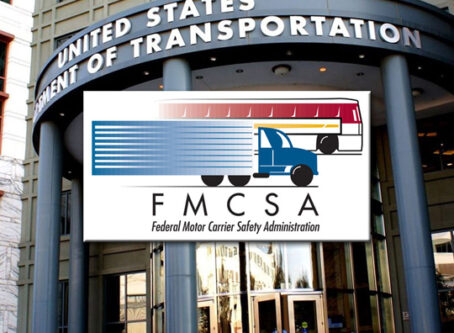States take steps to add electric, hybrid vehicle fees
The surging popularity for electric and hybrid vehicles has state officials throughout the country taking steps to stay ahead of the growth to capture needed transportation revenue.
There are more than 32 states that impose a special registration fee for plug-in electric vehicles, according to the National Conference of State Legislatures. Most of those states also assess a fee on plug-in hybrid vehicles.
Fees range from about $50 annually for plug-in electric vehicles in Colorado, Hawaii and South Dakota to $225 yearly for plug-in electric vehicles in Washington.
So far this year, action has been taken in at least five states to jump on the bandwagon of tapping affected vehicle owners to help cover road maintenance needs.
Georgia charging station tax
The state of Georgia already collects a $200 fee on alternative-fueled passenger vehicles.
Effective July 1, a new law also will tax electricity for affected vehicles.
Currently, charging stations in the state charge for the amount of time spent at the pump.
Gov. Brian Kemp has signed into law a bill to require those drivers to pay for the kilowatt power used. The change is described as similar to paying for fuel by the gallon.
The Georgia Department of Agriculture will be required to regulate electric vehicle charging stations.
Stations will be responsible for posting their prices. State inspectors will be responsible for monitoring to make sure customers get the electricity they pay for.
Additionally, SB146 adds a state excise tax of 2.84 cents. The revenue will be used to help pay for road work.
The $200 registration fee now paid annually by electric vehicle owners remains unchanged.
Indiana electric, hybrid vehicle fees
In nearby Indiana, a lengthy transportation bill signed into law includes a provision to collect more revenue from electric and hybrid vehicle owners.
The state charges electric vehicle owners a $150 fee. Hybrid vehicle owners pay a $50 fee. The amounts are indexed every five years.
Revenue from the fees is routed to the state’s local road and bridge matching grant fund.
Previously HB1050, the new law authorizes yearly rate increases using the annual index factor.
Commercial vehicles registered in the state are exempt from the change.
The new law also includes an extension of the state’s annual fuel tax increase in place since 2017.
The 6-year-old law called for rate adjustments through 2024. Adjustments made each July 1 are capped at one penny.
HB1050 extends the rate increases through July 2027.
Montana
A new rule taking effect July 1 in Montana supplements transportation funding via electric and hybrid vehicles.
Affected owners will be tapped to help cover costs for road upkeep and construction.
Previously HB60, the new law charges electric vehicle owners from $130 to $340. The amount owed is based on vehicle weight.
Electric trucks in excess of 26,000 pounds will pay $1,100 annually. The fee amounts for hybrid vehicles range from $70 for vehicles under 6,000 pounds to $700 for vehicles in excess of 26,000 pounds.
A report from the Montana Legislative Services Division shows there were nearly 1,900 plug-in electric vehicles registered in the state as of January 2022. There were about 1,000 plug-in hybrid vehicles registered.
The Governor’s Office of Budget and Program Planning estimates vehicles covered in the new rule will increase by 30% annually.
The fees are estimated to raise nearly one-half million dollars annually by fiscal year 2025.
Tennessee
Tennessee is another state to act on the issue.
Gov. Bill Lee signed into law a $3.3 billion bill that is touted to tackle transportation needs throughout the state.
Among the methods of generating additional revenue included in the Transportation Modernization Act is raising fees on owners of all-electric vehicles. Affected vehicle owners now pay $100 annually.
The new law doubles the rate to $200 until 2027. At that time, the rate will increase to $274. The state will index the rate to inflation thereafter.
Hybrid vehicle owners will have a new fee. The rate will be set at $100 through 2027. Starting in 2028, the amount will be indexed.
Another revenue stream in the act is authorization for the Tennessee Department of Transportation to pursue public-private partnerships.
Texas
Texas is another state to raise road revenue via electric and hybrid vehicles.
Gov. Greg Abbott has signed into law a bill to impose an additional fee for the registration and renewed registration of electric and hybrid vehicles.
HB820 authorizes an annual fee of $200 to be collected from electric vehicles. Vehicles that use a combination of fuel and electric power, or hybrid vehicles, will pay $100.
The new fees are estimated to raise an additional $280 million during the 2024-25 biennium, according to a fiscal note attached to the bill. They are applicable only to affected vehicles weighing up to 10,000 pounds.
While the bill was under review at the statehouse, supporters said that electric vehicle owners essentially receive a tax break by not paying the 20-cent state fuel excise tax. Taxes they do pay do not go into the road fund.
They added it is time to adopt the new fees because fuel tax revenues cannot keep pace with vehicle use and rising road construction costs. Additionally, supporters said that increasing popularity of more fuel-efficient and electric vehicles will only widen the gap.
Most of the revenue raised – 90 % – from the new fees will be directed to the state highway fund. Money in the fund can only be used for road and bridge work.
The remaining revenue raised will be applied to an electric vehicle battery disposal account to reimburse costs by the state. The new law takes effect Sept. 1.
Legislative pursuits to raise road revenue via electric and hybrid vehicle owners are ongoing in at least two statehouses.
New Hampshire
The New Hampshire Senate acted earlier this year to advance a bill that would introduce an annual registration fee to be collected on electric and hybrid vehicles.
SB191 would set a flat $100 fee for affected vehicle owners.
The state DOT estimates the fee would raise about $800,000 annually for roads, highways, bridges, or other projects. As much as 20% of the revenue could be used for constructing electric vehicle service equipment around the state. The bill is in the House Ways and Means Committee.
Pennsylvania
Pursuit continues at the Pennsylvania statehouse to create a five-year pilot program to levy a mileage-based user fee on electric and hybrid vehicles.
Sponsored by Rep. Rich Irvin, R-Huntingdon, HB85 would assess a 25-cent-per-mile fee or $214 annual fee on hybrid vehicles. Electric vehicle owners would pay a 31-cent-per-mile fee or a $265 yearly fee.
Affected vehicle owners who choose the mileage-based fee would not be required to pay more than the annual fee for their vehicle type, nor would they be required to install a GPS-style device that tracks their travel.
Irvin said the state funds a significant portion of its road maintenance with a fuel tax.
“However, with over 30,000 motorists driving plug-in hybrid and electric vehicles, we need to ensure that everyone is contributing to the care and maintenance of Pennsylvania roads,” Irvin wrote in a bill memo.
The bill awaits consideration in the House Transportation Committee. Elsewhere, attempts to raise revenue from electric and hybrid vehicles failed to gain passage.
Florida
One Florida Senate-approved bill called for capturing needed transportation revenue from electric and hybrid vehicle owners.
SB1070 sought to impose a yearly registration fee of $200 on electric vehicles. Hybrid vehicle owners would be charged $50.
Each amount would increase by $50 in 2028.
An exemption was included for vehicles that use a battery storage system of up to five kilowatt- hours.
The bill did not get brought up for consideration in the House.
North Carolina
A North Carolina bill included a provision to tap electric and hybrid vehicle owners to help boost transportation revenue.
Electric vehicle owners in the state pay an extra $140.25 for registration or renewal. Hybrid vehicle owners do not pay an additional fee.
The Senate Transportation Committee previously voted to advance a bill to increase the fee amount for electric vehicles by $39.75 to $180. Hybrid vehicle owners would be charged a new $90 fee.
SB354 missed a deadline to advance from the Senate to the House, effectively killing it for the year.
Vermont
In Vermont, one lengthy transportation bill called for adding fees for electric vehicles and hybrid vehicles to help recoup lost fuel tax revenue.
House lawmakers voted to approve the legislation authorizing the design of a mileage-based user fee for electric vehicles. The tax would be calculated annually based on the total number of miles driven within in the state.
Advocates said the fees would be comparable to what an average fuel-powered vehicle pays in state fuel taxes. Hybrid vehicle owners would pay an increased registration fee.
H479 ended up in a conference committee made up of select members of the House and Senate to work out differences in each chamber’s approved version. The committee removed the fee provision from the bill. LL
More Land Line coverage of state news is available.









